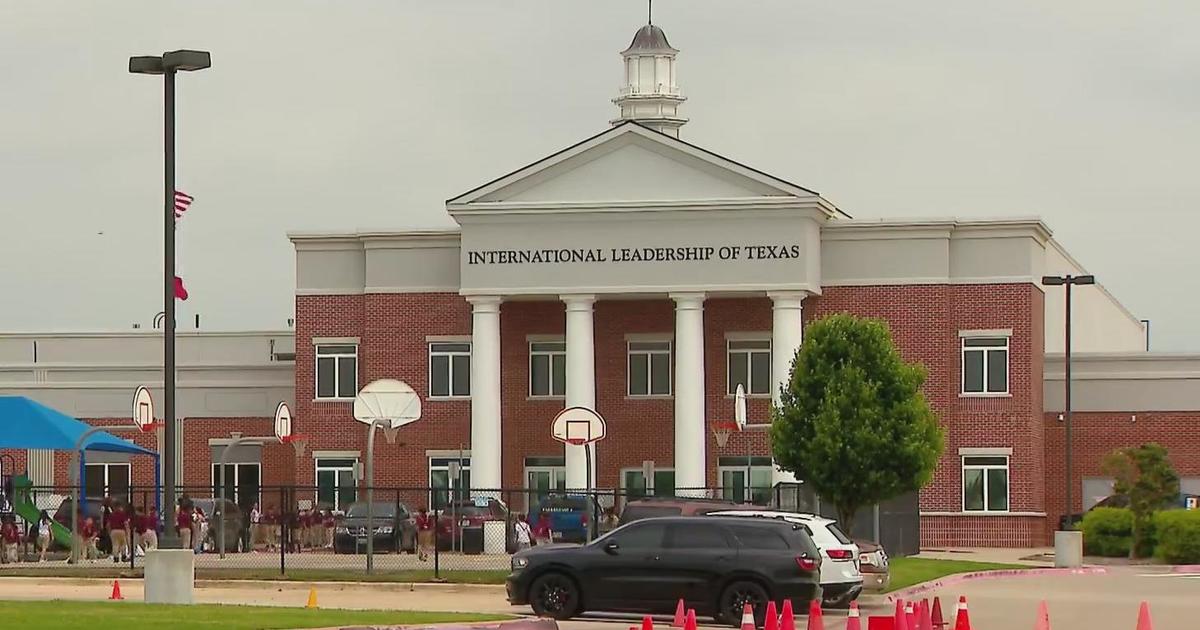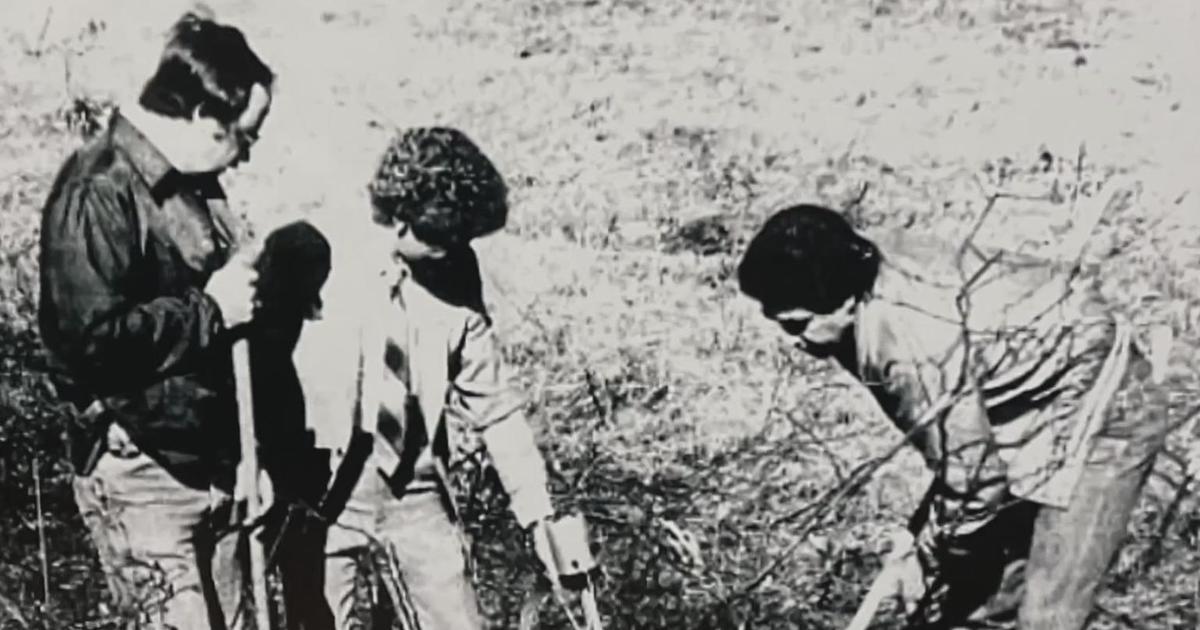I-Team Investigation Results In New Texas Law Protecting Homeowners From Unexpected Taxes
FORT WORTH, Texas (CBSDFW.COM) - Following a nearly two-year long I-Team investigation, a new law should help protect homeowners from being hit with what many homebuyers told CBS 11 News were "hidden costs."
Texas State House Representative Tan Parker says he saw homeowners in our I-Team investigations in 2020.
"I'm thankful to have watched your broadcast to have seen the story, and I wanted to immediately take action on behalf of my constituency," says Representative Parker.
In our first report, North Texas homeowners Diane and Gary Owen says, "I opened up the tax bill, looked at it and thought, 'Why is it so much more than what we thought it was going to be?' "
"I'm mad," says Vanessa and Robert Fillingim. Vanessa is a realtor who told us in March of 2020 she had no idea about the added cost.
The I-Team followed up months later when residents in another new development also began complaining. "We would have bought a home elsewhere," says Karla New in September 2020.
The homebuyers were telling the I-Team they moved into new housing developments built by some of the biggest builders in Texas; however, some of them said no one told them they were also moving into a public improvement district or PID.
Others tell the I-Team they were told they were moving into a PID, but the amount more than tripled after they signed on the dotted line.
PIDs are common in Texas. They allow a city or county to charge a builder to develop roads, water, sewage, sidewalks, etc... A builder can pass that cost onto buyers.
You'll see it on your tax bills.
In a Denton case the I-Team investigated, the nearly 100-homeowners who were filing complaints stated that "each [house] was assessed nearly $31,000 for the PID."
It was an amount many said they would have agreed to pay in full upfront at closing if they had known about it.
Over time, they said the interest could have added tens of thousands of dollars on their property taxes. In the Fillingim's case, it would have been "$75,000" according to the homeowners. "We would not be living here today," explains Vanessa.
Following the stories, the I-Team received several emails from viewers stating:
"I'm one of those buyers who was not told about the PID tax."
"They [builders] are defrauding folks."
"I can't believe this is still going on."
Dallas Attorney Rachel Khairallah has represented more than 100 homeowners in numerous cases. "I think it's probably happening all over Texas," says Khairallah when we first began digging into this in early 2020.
Today, she says she's now filed seven lawsuits all together- some representing more than 100 people each. She says they are all against major Texas builders. Two of the suits are still ongoing. They all involve PID disclosure issues.
Despite the ongoing complaints and news coverage, she says, "It is still happening all over Texas."
The new law, effective September 1, 2020, requires builders to provide you two notices about a PID assessment.
First, at the time you sign your contract.
And second, at closing. This one must be notarized.
The law also gives a clear indication that you can sue for damages if you do not get a notice.
"It gives me some satisfaction knowing the legislature is starting to recognize what is missing from the law relating to these disclosures and what people have to be aware of," says Khairallah. However, she still wants more.
The estimated amount you will owe is not included in the new notice requirements.
The I-Team took her concerns back to Representative Parker who was quick to say he would follow-up.
"I will be happy to visit with her or any lawyer that would like to talk about some of the technical details of the bill," says Parker. He told the I-Team he is glad to continue looking at the legislation and tweaking it if necessary. "I'm very open to working on improving legislation in the future."
While lawmakers and legal experts continue to try and find ways to protect you from non-disclosure about this, here's what you should do:
WHAT CAN YOU DO?
HOMEOWNERS
- Get out your tax documents.
- Look for "PID" or "Public Improvement District" on your itemized list.
- If you did not know about it, question it with your realtor and builder.
HOMEBUYERS
- Ask your realtor and builder "Am I moving into a PID?"
- Get the yes or no in writing.
- Find out how much it will cost. And then decide if this is right for you.
ARE YOU LIVING IN, OR MOVING INTO, A PUBLIC IMPROVEMENT DISTRICT?
The I-Team received the information below about Public Improvement Districts from Public Information Officers in the following North Texas cities (not all cities have a PID):
DALLAS
Information can be found here.
FORT WORTH
Information can be found here.
ARLINGTON
- Downtown Business Improvement District applies to commercial properties only
- Arlington Tourism Public Improvement District applies to hotels 75 or more rooms only
- Viridian Public Improvement District created by the Viridian Municipal Management District, not the City.
We do not have any residential PIDs.
CELINA
Information can be found here.
Here is a list of the City of Celina PIDs:
- The Lakes at Mustang Ranch
- Creeks of Legacy
- Ownsby Farms
- Wells South
- The Parks at Wilson Creek
- Sutton Fields II
- Wells North
- G Bar 7/Glen Crossing
- Cambridge Crossing
- The Columns
- Chalk Hill II
- Glen Crossing West
- Wilson Creek Meadows
- Celina Hills
- Mustang Lakes Annex
FLOWER MOUND
The Town of Flower Mound currently has one PID, in the River Walk at Central Park development. A map of its boundaries is located here.
It was approved by voters in November 2013.
The Town does not have any formal requirements for builders regarding how a potential homebuyer is informed the property they are interested in is part of a PID. However, the PID paperwork is part of a homebuyer's closing documents.
FRISCO
Information can be found here.
PLANO
The City of Plano has two PIDs and plans to approve another in a few months.
The Downtown Plano PID was established by a petition of the property owners (approx. 55) in Downtown. This PID helps Downtown fund events and marketing. The other PID and the future one cover the 99 acres of the Collin Creek Mall and are, again, established by petition.
Criteria to establish PIDs are found in State law. That's Chapter 372 of the Local Government Code.
EULESS



